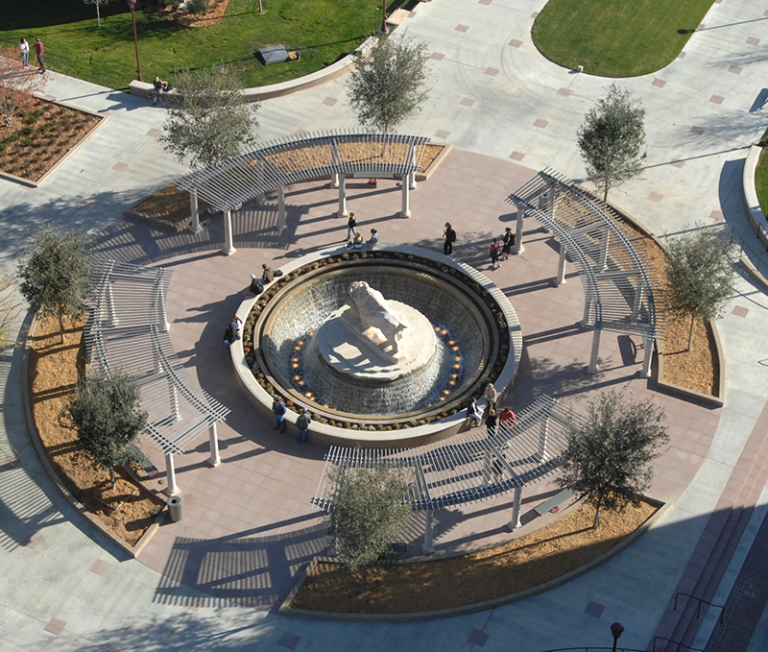Second in a series on teaching excellence
Teaching is leadership.
There are many distinctive views of teaching but, in the end, teaching is about leadership. I do not think it possible to find a great leader who is not a great teacher or, conversely, a great teacher who is not a great leader. Fundamentally, teaching and leadership require the ability to cast a vision and pursue it doggedly; little else matters.
We have worn out the idea of vision in contemporary thinking. Anyone who can conjure up an image of the future is deemed to be a visionary. I think not. Vision casting, to have meaning and value, demands the vision to have motivating purpose. That purpose must be seen as worthy so that a person or group of people allows the vision to affect the path of their lives.
This is what great teachers do all day long. In an introductory history class of three hundred students someone might say it is impossible to cast a vision for this group that ties basic history to their lives.
Not for great teachers. They lead in such a way that students can’t help but follow.
In a seminar class with a few graduate students, the great teacher helps them think about their own goals and aspirations relative to something larger than themselves, whether in the context of a career choice, a mode of scientific investigation, a painting, or a story.
Victor Frankl, in Man’s Search for Meaning, captures the essence of both vision and teaching in the tension that exists between the two:
“What man actually needs is not a tensionless state but rather the striving and struggling for some goal worthy of him. What he needs is not the discharge of tension at any cost, but the call of a potential meaning waiting to be fulfilled by him.”
In comparing Frankl’s experience as a survivor of Theresienstadt and that of a student in freshmen English, any perceived trivialization is unintended. Rather, the importance of finding value in experience as the way to direct the future is a significant part of both teaching and leadership.
I believe Frankl would agree.
This is exactly what excellent teachers and leaders do.
There are many counterfeits for casting a vision. I have heard it said that a person standing in front of a classroom (I won’t call him a teacher) can get good student evaluations by bringing doughnuts to class.
What a degrading insult to students who have earned the right to avail themselves of the opportunity that excellent teaching provides. A teacher who thinks pandering to students in any way is a means to be perceived as a good teacher shouldn’t teach at all for the disrespect that it presents to students, the contempt for sharing and pursuing a vision with students, and the neglect of the most fundamental responsibility of standing in front of a classroom and saying, “I believe…” to students.
This is as misinformed as a leader who believes pandering to the “led” will get high marks, support, or respect. Politicians who try this eventually get found out, as do teachers who stoop to such wickedly myopic belief.
This trivialization undermines good leadership and good teaching.
Teaching and leading with passion is always the result of deep conviction that you have something worth believing in, whether it’s introductory Western Civilization, or High Energy Particle Physics.
Without a teacher’s vision any class is a waste of time. Those in front of the classroom with nothing to say should get out of the way.
Our university deserves nothing less, and our students deserve every ounce of vision that we can squeeze out of ourselves as it is teaching excellence emphatically realized.





My wife and I use a phrase from Frankl’s discourse in Mans Search for Meaning when some aspect of our relationship is about to break, “The shoelace broke.” A teacher with vision not only purports a teleological outlook but administers to those whose “shoelace is about to break.” I had a young student (first generation college) in my office yesterday feeling completely out of place in class. Sharing some of my own rough experiences in academia and the architecture industry he began to understand that, Yes, I might come into class donning a powerful charismatic vision but still have hit the wall of life many times. I shared with him the one motto my father taught me, (he was educated in Great Britain with Headmasters) “Strive to be better than your master” I told the student, “Look at me and aim higher.”
Oh, yes…I did start my 100 student class feeding them 15 large pizzas and punch!
I agree completely. Leadership in the classroom says to students that I know the way or have been down the path of getting an education and also trying to find out why I am here and what I will contribute. I think this is one of the best gifts teachers can give students, to tell them that they are here for a reason and they need to figure out what that reason is and how they are going to better this world through their efforts. I teach history. Students are ,mostly amazed when I tell them that popular culture, film, music, literature can reveal the attitude and issues of a historical period. They love it and it helps them to start looking at their world with a much more critical eye. When I see this happen I call the awakening. When they awaken to life around them and begin to practice critical thinking in their own world they begin their journey towards purpose.